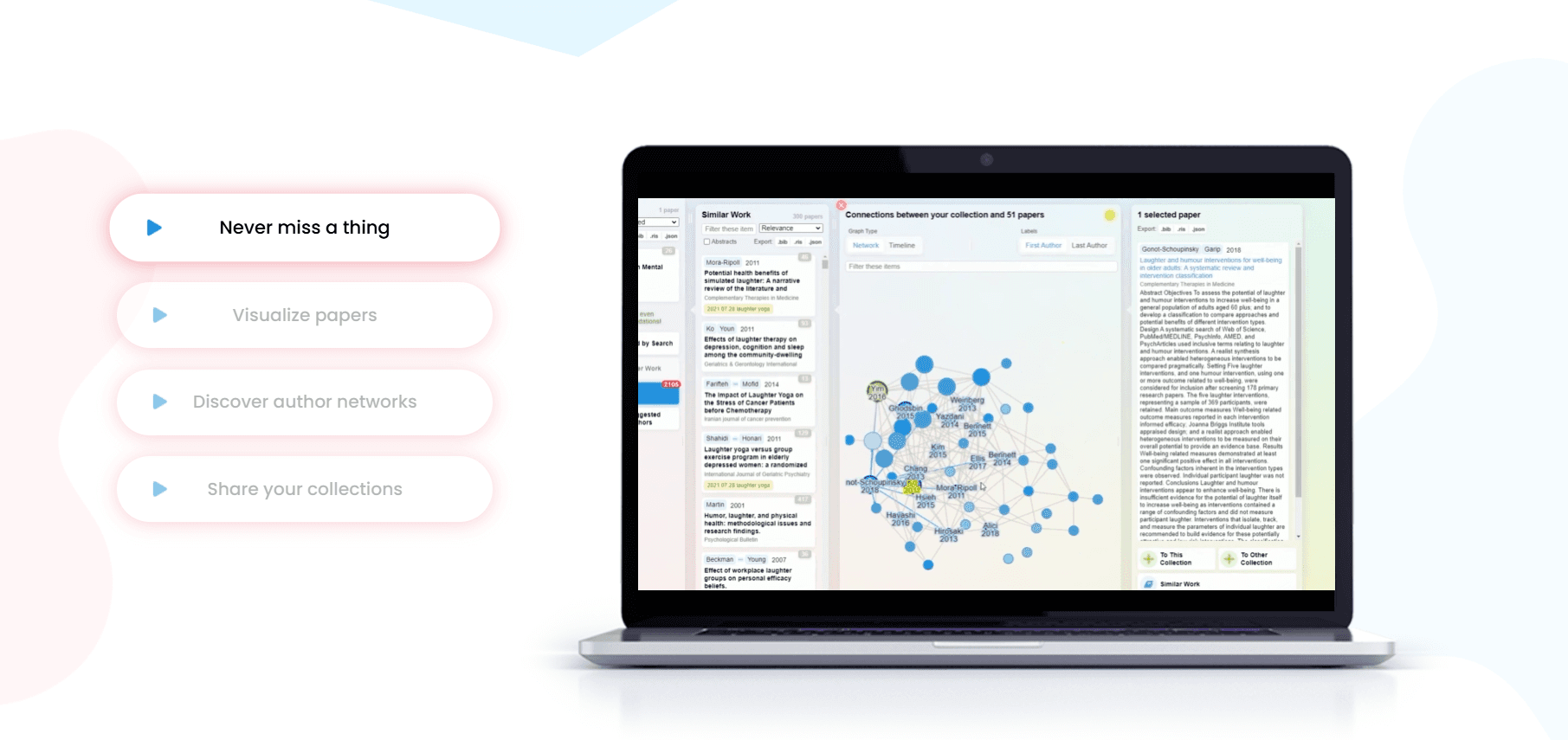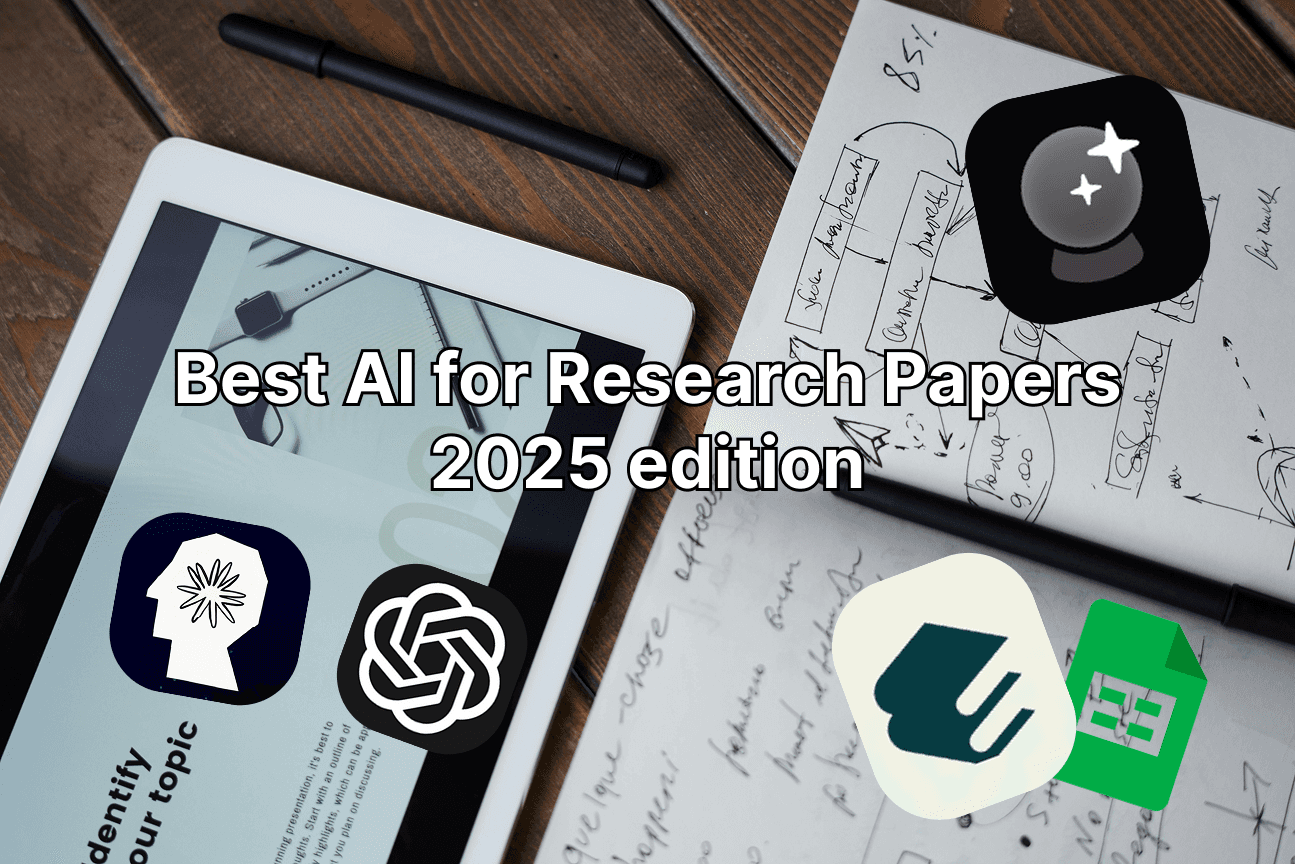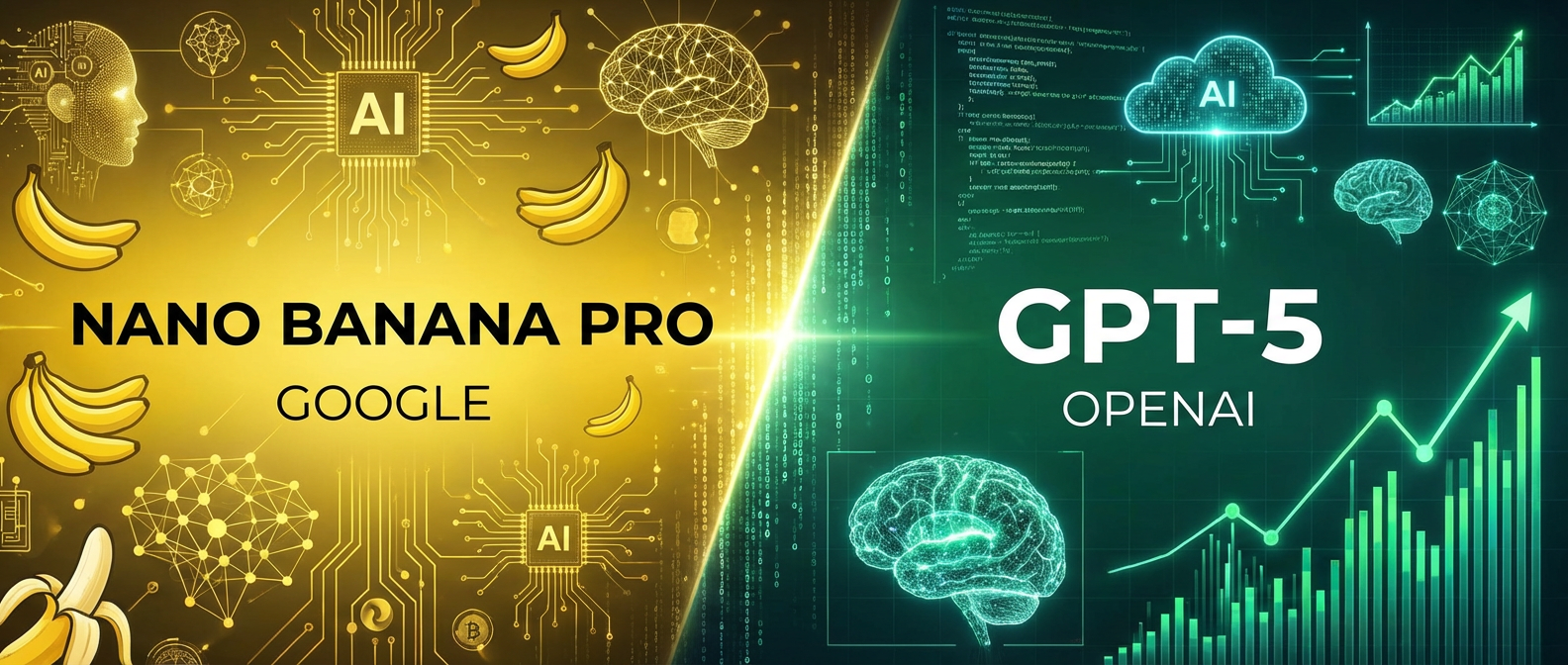Research papers are often written in a language so clunky, long and tiring, that it is hard to grasp anything. And when you have a lot of research papers to work with, even the best written ones become a kind of nightmare, need a lot of time and effort from you. AI tools, in general, can help, and I would have saved a lot of time if I had AI at years when I researched most of the papers I ever read or worked with.
Today I would like to share some of such AI tools that work well with research papers, their summarization, editing, exploration and research itself… All things related. Let's start.
Introduction
AI apps for academic research transformed how most students or educators find, use and spread information. These AI tools help students & researchers make sense of even most complex research papers and works. What are their usual, expected features?
summarization
language translation
anti-plagiarism
even some of contextual analysis.
AI technology gets better, and these tools are becoming top resources to simplify and improve the process of overall research.
Benefits of Using AI Tools for Research Papers
Let me name 6 loose advantages of using AI in the first place. So, AI for Academic Research provides significant benefits in understanding complex research papers. AI tools help to understand research papers in those ways at least:
Time-saving automation: AI helps you do less dull, repetitive things. It automates them. So now you can process large amounts of information quickly and efficiently.
Summarization: AI can quickly summarize lengthy research papers, highlighting key points and saving your time.
Language translation: For many of non-native speakers, AI can translate research papers into their preferred language, making academic content more accessible.
Contextual analysis: AI tools can analyze the context of a paper, providing insights into its significance and relevance in the field.
Keyword extraction: AI can extract important keywords from a research paper, aiding in quick comprehension of the main topics.
Comparative analysis: AI allows for comparing multiple research papers, identifying similarities, differences, and trends across studies.
This means, AI's now of help to students and researchers to efficiently understand complex scientific literature. These features make AI tools one of the best assistants in any kind of academic research.
AI for Research Papers: Full Comparison Table for 2025
Here is what I found out about each option that I got to test even a bit, and I have sorted them by category, what are their ideal use cases and key strength, also some information on pricing as of 2025.
Tool | Category | Best for | Key strengths | Typical pricing (Oct 2025) |
|---|---|---|---|---|
Writingmate | All-in-one assistant | One plan for many models | 200+ models; web search; file chat; split-view; YouTube into notes | Subscription |
Scholarcy | As name suggests, summarization | First-pass understanding | Flashcard-style summaries; key points/tables/refs | Free tier; low-cost paid |
TLDR This | Summarization | Ultra-quick skims | One-click short summaries; browser extension | Free basic; paid tiers |
QuillBot (Summarizer) | Summarize/Paraphrase | Rewriting dense text | Multiple rewrite modes; grammar + citations | Free basic; premium |
Wordtune Read | Reading aid | Simplifying jargon | Clear rewording; preserves meaning | Free lite; paid |
Glasp | Highlights + summary | Study notes on web pages, also has an extension for Youtube AI summaries | Social highlights; AI from your highlights | Free |
SciSpace Copilot | PDF Q&A | Explaining figures/methods | Ask questions of a PDF; grounded answers | Free limited; paid |
Explainpaper | PDF clarify | Line-by-line explanations | Highlight → plain English | Free |
ChatPDF | PDF chat | Conversational reading | Page-aware Q&A; quick lookups | Free limited; plus |
ChatGPT (GPT-4 class) | General LLM | Flexible help (summaries, drafting) | Strong reasoning; adaptable tone | Free basic / Plus |
Claude 4.5 (Sonnet) | General LLM | Long documents & critique | Very large context; coherent analysis | Free limited / paid |
Elicit | Literature review | Finding relevant papers | Question → papers + distilled findings | Free |
Consensus | Evidence answers | “What does literature say?” | Yes/No with cited sources | Free basic; Pro |
Semantic Scholar | Scholarly search | Scoping a topic | AI TL;DR; citation graphs; related papers | Free |
Research Rabbit | Discovery/mapping | Related-work networks | Visual graphs; recommendations; collections | Free |
scite (Scite.ai) | Citation analysis | Credibility checks | Supporting vs. contrasting citations | Free limited; paid |
Perplexity | Answer engine | Fast fact-checks with sources | Always-cited answers; broad coverage | Free / Pro |
Jenni AI | Writing assistant | Drafting with suggested cites | Academic tone; inline cite suggestions | Free trial; paid |
Paperpal | Academic editing | Polishing manuscripts | Grammar/style tuned for academia | Free checks; paid |
Wordvice AI | Academic editing | Proofreading & clarity | Publication-style suggestions | Freemium |
Top AI Tools for Research Paper and Studying
There are many useful AI-powered tools that can help you better understand complex research papers. Here are some of the best options available:
All-in-one AI Tool: Writingmate
Writingmate all in one AI chatbot lets you use over 200 different AI models, all the fancy advanced ones as well as simplest models. That’s cool because you can pick whichever model fits what you need. Like, one might be really good at analyzing data. And another is awesome for translating languages or even making creative stuff. Anyways, all of them are here, in this one beautiful tool.
There’s so much to choose from that pretty much anyone doing research can find something useful. If you’re into humanities, you can use AI to look at texts or figure out what they mean. Science people can use it for complicated calculations, data modeling, predicting stuff… basically a bunch of things.
Try it here: https://writingmate.ai

A standout feature of Writingmate is its AI Web Search plugin, which allows AI models to access the internet directly. This capability is incredibly useful for literature reviews, fact-checking, and keeping up with the latest research developments.
Key Features:
– Access to All best and newest AI Models: Users gain access to both paid and free AI models with one subscription. GPT5, Mistral, Llama2.5, Claude4 Sonnet, 4.1 opus and much more.
– Image Generation: Supports AI image generation by Dalle 3, Stable Diffusion and even Flux.ai!
– Web Search: Helps seek needed documents and research.
– File Handling: Interprets graphs and data from tables and searches for information within any file.
– YouTube Summarization: Helps quickly summarize any scientific video.
– AI Split View: Allows users to compare responses from different models, including execution speed, token usage, and accuracy.
– GPT Assistant: you can add your instructions and files to customize any AI model and create specialized assistant for your needs.
Organize Research Papers: Research Rabbit
Research Rabbit is a free tool that lets you collect and organize papers into “collections,” which then shape the recommendations via algorithms you get. This one also shows visual graphs of how papers and authors are connected. Think of it like a “Spotify for research papers.” For students and researchers, it’s a simple AI fo academic research tool to dive deeper and keep track of what matters most. Very easy to explore a topic or track an author’s work now, no more google scholar dozens of searches… (but that one will also be on the list, for different reasons)

Key Features:
– Literature Discovery: Identifies and suggests relevant academic papers and research articles based on user interests.
– Visual Exploration: Provides interactive visual graphs for exploring connections between papers, authors, and topics.
– Collaboration: Allows users to share collections of papers and collaborate on literature reviews.
– Integration: Integrates with existing research databases and tools for seamless access to literature.
Scientific literature: Scite.ai
Scite.ai makes research more trustworthy by checking how a paper’s claims are used in other studies. Instead of fake or missing citations (a common AI problem), scite shows real references from published papers. Even better, it tells you if later studies support or disagree with a claim. This helps students&researchers quickly see,which findings are reliable and which ones are now being debated, and where exactly.
Key features of this AI for research?
Real citations made of published papers
Shows if claims are supported or refuted
Speeds up evaluating scientific literature
Builds trust in research findings

New Way to Search and Ask: Perplexity
Perplexity's an AI search assistant that is quite general at first. What I like though is how it works as a mix of Google, Wikipedia & smart helper a'la gpt. It’s trained on factual information, so it gives clear answers with sources you can check. For students and researchers it’s not a slow way to explore topics and find reliable knowledge. In 2025 I've still found it to be one of the most useful AI tools for learning and research.

Key features:
– Advanced Summarization: Simplifies complex articles and provides human-like explanations for easier understanding.
– Media Support: Handles various formats like images, videos, and PDFs, enriching the responses.
– PDF Features: Offers faster and more relevant answers for queries involving PDFs.
– Co-Pilot Feature: Refines search results through interactive queries, delivering tailored responses.
Google Scholar
This was known long before 'AI Era'. Now, it became a lot more powerful. Google Scholar is a search engine powered by AI, designed by Google to help academics and researchers locate and access scholarly literature. It is one of the top AI tools for academic research, enabling users to keep up-to-date with the latest studies, articles, conference papers, and theses. This is a freely accessible web search engine that indexes the full text or metadata of scholarly literature across various formats and disciplines.
Key features:
– Comprehensive Search: Searches across a wide range of academic sources including articles, theses, books, and conference papers.
– Citations: Tracks citations of articles and provides citation metrics like h-index and i10-index for authors.
– Profiles: Researchers can create profiles to showcase their publications and citation metrics.
– Library Links: Integrates with institutional libraries to provide access to full-text articles.
In 2025, you can also use Google Gemini (ex-Bard) in your studies, and it's great to have it included in our Writingmate toolbox: https://writingmate.ai. We have all the best AI models from GPT to Claude to Mistral, built into one single service. You can try it for free and see how it works.
Elicit.org
Elicit is an AI research assistant for AIin academic research that helps you ask better questions and find the right papers. Even if you don’t know the perfect keywords.
It can quickly summarize findings, pull out data & combine evidence from multiple studies. Good both students and researchers who need reliable insights and no digging through endless PDFs anymore.
Key features here:
Helps refine research questions
Summarizes key papers
Extracts data points from studies
Combines evidence across research
Automates repetitive research tasks
Consensus
Consensus's like Google Scholar + GPT5. You type a question in plain language so even Yes/No questions. Then, it scans research papers to give you an evidence-based answer. It shows the overall view from many studies, along with the citations. Found it to work decent enough for topics like health, sleep, social policy, and more.
Key features I found:
Ask questions in everyday language
Get answers backed by real studies
See short summaries of findings
Check citations directly
ChatPDF
ChatPDF makes it easier to read and understand research papers. Instead of scrolling through tedious texts, simply upload a PDF, let the app give you a short summary in plain language.
Any other ways to notice interesting details? Well, It also suggests questions you might want to ask about the paper. It works a lot like ChatGPT, but it’s designed just for research papers. For students or researchers, especially in tricky fields like medicine. In my experience, saves time while also making learning clearer in general.

Key features of Chat PDF:
– Interactive PDF Chat: Users can upload any PDF and ask questions to get instant answers and summaries, similar to interacting with ChatGPT but specifically for PDF documents.
– Multi-File Chats: Allows for the making of folders to organize / chat with multiple PDFs in a single conversation.
– Citation Context: Gives references to the original sources within PDF.
– API Integration: API for programmatic access to its functionalities, users can have PDF chatting capabilities with their own applications.
AI Limitations in 2025. Academic AI Traps & Tips
I know AI tools are useful, and explained a lot of their advantages in this brief guide. AI can sometimes produce biased, inaccurate information. Please, be aware of limitations below and use AI tools carefully to get the most value from them. Always double-check the information provided by AI models against actual research papers or with verified scientific sources.
Key Point | What It Means | How to Do It | Helpful Tools / Links |
|---|---|---|---|
Double-Check Information | AI can be wrong or biased. Always test its answers. | Compare the AI’s claim with the original PDF or trusted database. | ChatPDF for Q&A directly in the paper; SciSpace Copilot for PDF explanations |
Rely on Research Papers | Don’t just accept AI summaries—go to the source. | Cross-reference any insight with real published work. | Semantic Scholar for paper discovery; Scholarcy for structured summaries |
Check Citations Carefully | AI sometimes invents references. | Use dedicated tools to confirm if citations are real and how they’re used. | scite.ai (shows supporting vs. contrasting citations); Perplexity AI (inline cited answers) |
Use Step-by-Step Prompts | AI gives better answers when guided in small steps. | Ask first for definitions → then context → then outlines or summaries. | ChatGPT; Claude 4.5 with large context windows |
Stay Critical | AI is a tool, not a replacement for your thinking. | Treat outputs as drafts, not final truths. Your judgment is key. | Use AI to speed up mechanical tasks (summaries, drafting, formatting) so you can focus on analysis |
Think Workflow, Not Just Tools | No single app does it all. Combine categories. | Example: Scholarcy (summary) → ChatPDF (Q&A) → scite (credibility) → Paperpal (editing). | Writingmate bundles multiple models into one plan |

Maximize AI – Use Incremental Promting
A good way to get better answers from AI is to use incremental prompting. the simplest technique one can invent. So, I usually try asking in small steps instead of one huge question. I can start with a simple request, like “explain this concept.” Then move to related authors or theories, and finally ask for an outline. And with this building up slowly, tools like ChatGPT or Writingmate stay more accurate, they give you clearer results.
So when tackling a research paper, you just can begin by chatting with ChatGPT about specific concepts. Next, you can explore relevant authors and their theories to give the AI the background it needs. Once it has a good understanding of the context, it can help you create an outline for your paper. From there, you can expand on each point in the outline, allowing you to quickly put together a solid first draft of your research paper.

Conclusion
AI for academic research tools make reading and working with research papers a lot easier. Instead of spending hours trying to understand every line, you can use AI tools for research to give you a quick summary, explain confusing parts, even check if the information is backed up by other studies. There are AI for medical students, AI for economy students, AI for historians, and AI for any kind of branch in academia… And, of course, an all in one platform called writingmate.ai
Each tool has its own strength. Some, like Writingmate or Scholarcy, give you the main points fast. Others, like SciSpace or ChatPDF, let you ask questions about the paper. And tools like scite help you see if the claims are (actually) trusted by other researchers.
These tools don’t replace your own reading or thinking, but they save time with making you focus on the big ideas. If you’re a student, researcher, or just curious about science, using AI can make your work less stressful, with your learning - a lot clearer.
Useful Articles for Further Insights
For more detailed articles and insights, visit our blog. Here we share our expertise with a passion for technology and helping people succeed online.
Frequently Asked Questions
Written by
Artem Vysotsky
Ex-Staff Engineer at Meta. Building the technical foundation to make AI accessible to everyone.
Reviewed by
Sergey Vysotsky
Ex-Chief Editor / PM at Mosaic. Passionate about making AI accessible and affordable for everyone.



